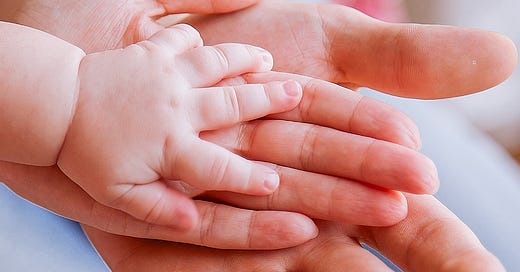Welcome back to the second and final post in The Fatherhood Framework's Valentine’s Day series! Last time, we talked about reviving romance after kids, and after careful thought, we have decided to not change the name Fifty Shades of Fatherhood, despite popular demand. Today, we’re getting back into form: if you made it through all that talk of rekindling the spark and thought, This is great, but why does it matter so much?—this post is for you.
Here’s the thing: Your relationship isn’t just about you and your partner. Your kids are watching, learning, and shaping their understanding of love and partnership based on what they see at home.
Voyeuristic? Maybe. Important? Absolutely.
Your Relationship Sets the Standard
We like to think our kids tune us out, but when it comes to relationships, they’re paying attention. And it has impact. Children who grow up in homes where parents have a strong, affectionate relationship are more likely to develop healthy romantic relationships themselves. In contrast, kids who witness high-conflict or emotionally distant marriages are more prone to struggle with trust, communication, and long-term commitment.
One study from the Journal of Family Psychology found that children raised by parents with strong, supportive relationships tend to replicate those dynamics in adulthood. In other words, the way you love, resolve conflict, and prioritize your marriage directly impacts how your kids will navigate relationships in the future.
So, while it might not seem like a big deal to skip date night again or go a few days without meaningful connection, those small patterns create a long-term blueprint for your child’s understanding of relationships.
What They See is What They Learn
Kids don’t learn love and respect from books or lectures. They learn it by watching how you and your partner treat each other—every single day.
They See How You Communicate – Do you and your partner talk openly, or are most conversations strictly about logistics (schedules, chores, who’s picking up the kids)? Do you listen to each other, or do conversations turn into debates over who’s right? Your kids will adopt those same communication habits.
They Learn How Love is Expressed – Physical affection, kindness, and appreciation matter. Kids who grow up seeing affectionate, caring parents are more likely to be emotionally secure and express love openly in their own relationships.
They Notice How You Handle Conflict – Every couple argues, but how you argue makes all the difference. If your kids see conflict handled with respect, teamwork, and resolution, they’ll mirror that. But if disagreements turn into shouting matches or silent treatment marathons, that’s what they’ll carry forward.
They Watch How You Prioritize Each Other – If you always put work, chores, and everything else ahead of your marriage, they’ll internalize that relationships come second to the daily grind. But if they see you making time for each other, they’ll learn that love isn’t just about feelings—it’s about effort.
The Long-Term Impact
The way you treat your partner doesn’t just influence how your kids will one day approach marriage—it affects their entire emotional well-being. Studies show that children raised in stable, loving environments develop stronger emotional resilience and emotional regulation. In contrast, growing up in high-conflict or emotionally distant households can contribute to anxiety, depression, and relationship difficulties later in life.
No pressure, right? But here’s the good news: You don’t have to be perfect. You just have to be intentional.
How to Model a Relationship Worth Imitating
Show Affection, Even When It’s Not Convenient—Kids should see that love isn’t reserved for birthdays and anniversaries. A quick hug in the kitchen, a kind word, or holding hands during a walk shows them that love is expressed in small, everyday moments.
Make Time for Your Partner—Date nights aren’t just for fun; they set an example. Your kids need to see that prioritizing a relationship doesn’t stop after marriage or kids. It’s an ongoing commitment.
Apologize and Resolve Conflicts Respectfully—Arguments happen. But if your kids see that disagreements can be handled with patience and problem-solving, not door slamming or cold shoulders, they’ll carry that skill into their own lives.
Respect Goes Both Ways—The way you talk about your partner, even in small moments, matters. Are you showing appreciation or rolling your eyes? Are you building them up in front of the kids or constantly making jokes at their expense? Kids pick up on everything, and eventually, they’ll imitate it
Final Thought: You’re Not Just Raising Kids—You’re Raising Future Partners
It’s easy to get caught up in the day-to-day chaos of fatherhood, but remember: One day, your little ones will be grown, navigating their own relationships. And when that time comes, the love and partnership they saw between their parents will shape what they seek, expect, and accept from their own partners.
So, if you’ve been looking for another reason to invest in your marriage—this is it. Not just for your happiness, but for the example you set for the next generation.




